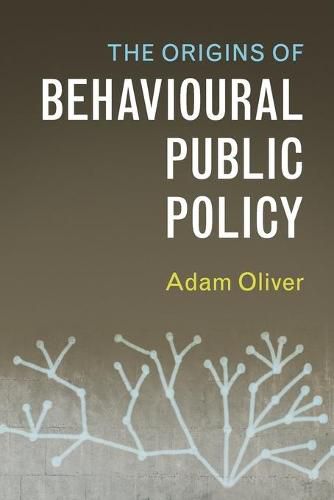Readings Newsletter
Become a Readings Member to make your shopping experience even easier.
Sign in or sign up for free!
You’re not far away from qualifying for FREE standard shipping within Australia
You’ve qualified for FREE standard shipping within Australia
The cart is loading…






The use of behavioural science to inform policy is one of the main developments in the social sciences over the last several decades. In this book, Adam Oliver offers an accessible introduction to the development of behavioural public policy, examining how behavioural economics might be used to inform the design of a broad spectrum of policy frameworks, from nudges, to bans on certain individual behaviours, to the regulation of the commercial sector. He also considers how behavioural economics can explain and predict phenomena as a challenge to economists’ assumptions around how people perceive time, utility and money. The book offers an intellectual foundation for all those concerned with behavioural public policy, from academics, undergraduate and postgraduate students with a diverse range of disciplinary perspectives, such as economics, political science, sociology and anthropology, to policy makers and practitioners working directly with behavioural public policy in their everyday working lives.
$9.00 standard shipping within Australia
FREE standard shipping within Australia for orders over $100.00
Express & International shipping calculated at checkout
The use of behavioural science to inform policy is one of the main developments in the social sciences over the last several decades. In this book, Adam Oliver offers an accessible introduction to the development of behavioural public policy, examining how behavioural economics might be used to inform the design of a broad spectrum of policy frameworks, from nudges, to bans on certain individual behaviours, to the regulation of the commercial sector. He also considers how behavioural economics can explain and predict phenomena as a challenge to economists’ assumptions around how people perceive time, utility and money. The book offers an intellectual foundation for all those concerned with behavioural public policy, from academics, undergraduate and postgraduate students with a diverse range of disciplinary perspectives, such as economics, political science, sociology and anthropology, to policy makers and practitioners working directly with behavioural public policy in their everyday working lives.